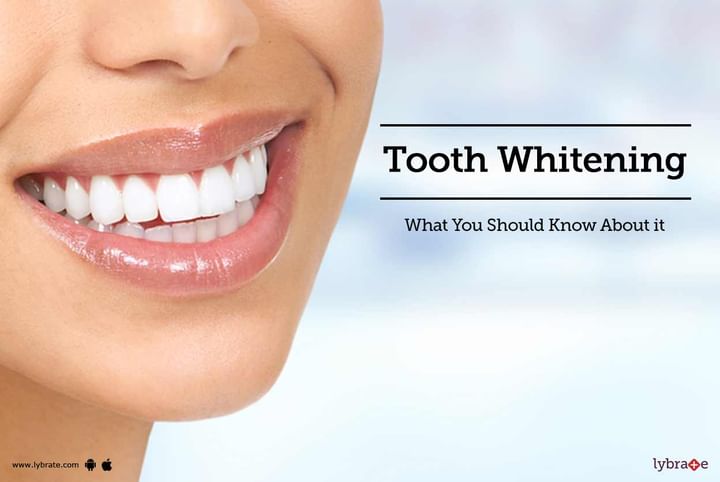Get the App
For Doctors
Login/Sign-up
Last Updated: Jan 10, 2023
BookMark
Report
Tooth Whitening - What You Should Know About it
A smile is said to be a person’s best accessory. No matter what the colour of your teeth may be when you were born, exposure to various things including tea, coffee, berries, wine etc can stain your teeth and mar their beauty. Thankfully this discoloration can be fixed by whitening your teeth. Here are a few things to know before you decide to whiten your teeth.
- Cleaning and whitening are not the same: Cleaning refers to the removal of plaque and tartar from the surface of the teeth while whitening is a chemical procedure that brightens the enamel.
- Not all teeth whiteners are the same: Most teeth whiteners have a hydrogen peroxide base, though they all act in the same way by releasing oxygen that reacts with strainers and removes them, they vary in terms of the strength of the hydrogen peroxide.
- Whitening can be slow or quick: Teeth whitening can be done in a dentist’s office or at home. In a dentist’s office, this procedure can take an hour while teeth whitening at home can take a few weeks. However, home treatments are usually much more budget friendly than getting your teeth whitened at the dentist’s office.
- Teeth whitening is not permanent: The effect of bleaching your teeth to whiten them can last from a year to three years. You will need regular touch ups to maintain the sparkle. You should also reduce your intake of food like wine and coffee that can stain your teeth. Regular brushing and flossing will also help maintain the look for longer. On the other hand, keep in mind that excessive teeth whitening can permanently damage teeth.
- Not everyone can get their teeth professionally whitened: This form of treatment is not suitable for children, adolescents, pregnant women and lactating women or people who are allergic to peroxides. This procedure can also not be performed on teeth that have cavities, exposed roots, bonded fillings, veneers, crowns incomplete dental work or on patients who suffer from gum disease and hypersensitivity. Bleaching may also not work in cases where discolouration is a result of prolonged administration of certain antibiotics or excessive fluoride intake during childhood
- There may be side effects: Sensitivity is one of the most common side effects of teeth whitening. This can vary from person to person and can be relieved with pain relievers. Sensitivity can also lead to gum recession. Other common side effects of this treatment include irritation of sift tissue and nausea or vomiting. If you wish to discuss about any specific problem, you can consult a Dentist.



+1.svg)
